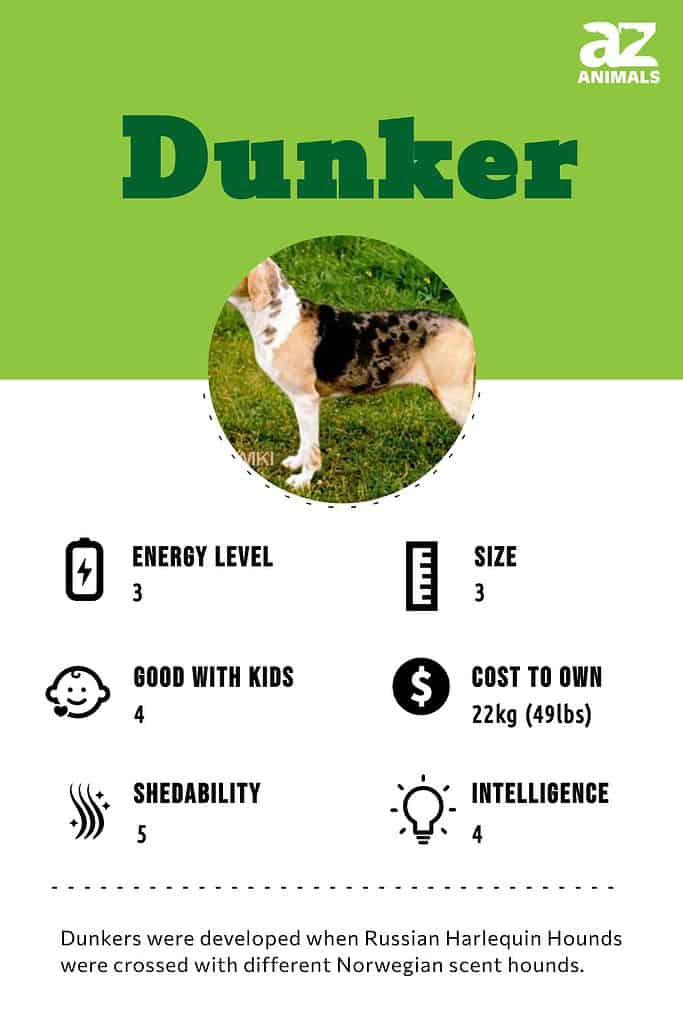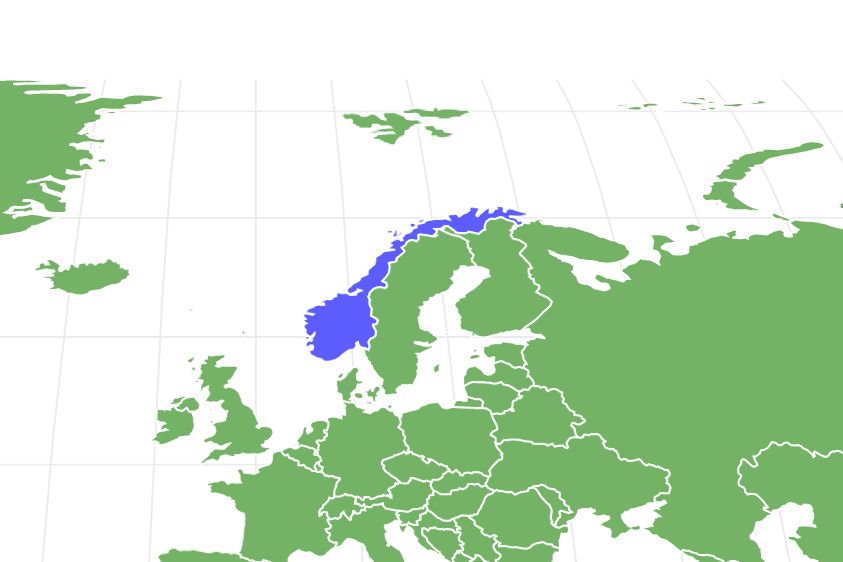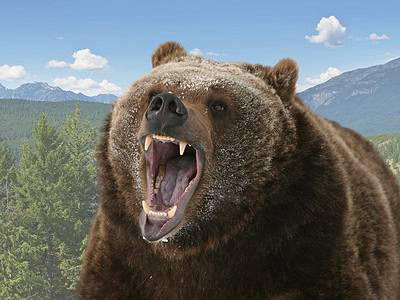Dunker
Canis lupus
A friendly and relaxed dog!
Advertisement
Dunker Scientific Classification
- Kingdom
- Animalia
- Phylum
- Chordata
- Class
- Mammalia
- Order
- Carnivora
- Family
- Canidae
- Genus
- Canis
- Scientific Name
- Canis lupus
Read our Complete Guide to Classification of Animals.
Dunker Conservation Status
Dunker Facts
Dunker as a Pet:
- General Health
- Energy Level
- Shedability
- Trainability
- Intelligence
- Tendency to Chew
- Size
- Family and kid friendliness
- Yappiness / Barking
- Moderate
- Separation Anxiety
- Moderate
- Preferred Temperature
- Cold climate
- Exercise Needs
- Moderate
- Friendly With Other Dogs
- Group
- Pure bred cost to own
- Around $700
- Dog group
- Working
- Male weight
- 25-39 lbs
- Female weight
- 25-39 lbs
This post may contain affiliate links to our partners like Chewy, Amazon, and others. Purchasing through these helps us further the A-Z Animals mission to educate about the world's species.
View all of the Dunker images!

Dunkers are a medium-sized scenthound that can be very affectionate. A Dunker Dog is also called a Norwegian Hound because their country of origin is Norway.
They are sometimes also referred to as a Norwegian Rabbit Hound. Dunkers were developed when Russian Harlequin Hounds were crossed with different Norwegian scenthounds. Captain Wilhelm Conrad Dunker was a military officer who worked to cross these Russian Harlequin Hounds with other dogs to create a breed that could handle working in the harsh conditions in Norway. The breed has been around since the 19th century.
See all of our expert product reviews.
Dunkers are very intelligent dogs who can make an excellent family dog as long as they are properly trained and socialized.
3 Pros and Cons of Owning Dunkers
| Pros! | Cons! |
|---|---|
| Calm: A Dunker dog can be very calm and laid back when their exercise needs are met. They will enjoy hanging out with their owners for a lazy day on the couch. | Exercise needs: Dunkers require at least 45 to 60 minutes of exercise each day. Because of their higher activity levels, they are not a great dog for an apartment. |
| Friendly: Dunkers are very friendly. When properly trained and socialized, they are great with kids and make an excellent family dog. | Challenging to train: A Dunker can be quite stubborn and is not always easy to train. If you are not an experienced handler, you’ll likely want to look for an obedience training class for your dog. |
| Playful: Dunkers love to play. If you are looking for a playful dog with will play tug of war or chase a frisbee, this is a good breed to consider. | Shed a lot: Dunkers lose a good amount of fur, so you’ll likely have a lot of fur on your clothing and furniture. Be prepared to brush them multiple times a week to keep the shedding at bay, but don’t expect your home to be fur-free with this dog breed. |
Evolution and Origin
In the 19th century, Captain Wilhelm Conrad Dunker decided to embark on a quest to create a breed of dogs which were not only ideal hunting companions, but were also capable of handling harsh Norwegian winters. To that end he began to breed Scandinavian tracking dogs renowned for their ability to withstand harsh conditions, with the Russian Harlequin Hound.
The result was the Dunker, named in honor of the Captain, capable of getting along with both dogs and humans, and possessing impressive endurance and superb tracking skills.
However, the German occupation of Norway resulted in the population of the canine dropping significantly. And although breeders managed to save the breed from extinction, other dogs which were imported into Norway became more popular.
However, the dog’s friendly, calm disposition means that it can be an excellent choice of housepet for canine enthusiasts.
Health and Entertainment for your Dunker
See all of our expert product reviews.
Size and Weight
Dunkers are a medium-sized breed. Both males and females generally weigh between 25 and 39 pounds. Males can be just a little taller and are normally between 19 and 22 inches tall. Females are typically between 18 and 21 inches tall. At 6 months, Dunker puppies are between 13.5 and 14.5 inches and weigh about 22.5 pounds. By 12 months, the puppies are between 16.5 and 17.5 inches and weigh about 27 pounds. A Dunker puppy should be fully grown by the age of 18 months.
| Height (Male): | 19 inches to 22 inches |
| Height (Female): | 18 inches to 21 inches |
| Weight (Male): | 25 pounds to 39 pounds |
| Weight (Female): | 25 pounds to 39 pounds |
Common Health Issues
Taking good care of your Dunker and scheduling regular checkups with the veterinarian will be important. There are a few common health concerns to be aware of before you adopt a Dunker.
Up to three-quarters of Dunkers have impaired hearing. Some only experience a partial loss of hearing, while others experience complete deafness. If you are concerned about your dog’s hearing, contact your veterinarian.
Another health issue some Dunkers face is hip dysplasia. The ball and socket in the hip of a Dunker with hip dysplasia do not develop correctly. Instead of fitting properly and moving together smoothly, they rub on each other. Over time, this causes deterioration to the ball and socket and can stop the joint from functioning. Hip dysplasia is hereditary but can be exacerbated by being overweight or not getting the right types of exercise. You can talk to your veterinarian. They may recommend a supplement with glucosamine and chondroitin to reduce the symptoms your dog is experiencing.
Without proper exercise Norwegian Hounds may become obese, which can lead to other health problems. To prevent this from happening to your dog, be sure to give them proper exercise and feed them a high-quality dog food that will help keep them at a healthy weight.
Some Dunkers may also develop a condition called progressive retinal atrophy (PRA). This eye condition leads to a gradual loss of vision and can cause dogs to become blind at a younger age. There is no cure for this condition, so you will want to look for Dunker who have breeding lines with healthy eyes.
Because of the droopy shape of a Dunker’s ears, they are also prone to ear infections. Less air is able to circulate within their ear canal, which makes it more humid and welcoming to yeast and bacteria. Regularly clean your Dunker’s ears and keep an eye on them. If you notice any discharge or odd smells, schedule an appointment with their veterinarian.
To recap, here are the common health issues that Dunkers face:
- Hearing loss or deafness
- Hip dysplasia
- Obesity
- Progressive retinal atrophy (PRA)
- Ear infections
Temperament
When their exercise needs are met, Dunkers are known for their very calm and affectionate personality. They love getting a lot of attention and will seek it out, so if you are not looking for a dog that will always want to be by your side, a Dunker may not be the right fit for you.
Another key personality trait of a Dunker is being very well-behaved. When time is taken to properly train and socialize them, they make a great family dog and are good with children. When Dunkers are out hunting, they exhibit a very focused behavior as they try to track down prey.
Dunkers are also known for their strong-willed personality. They do best with owners who have experience with training and raising a needier dog.
How to Take Care of Dunkers
Dunkers are unique dogs. Their health concerns, temperament, and other traits can help you develop the best plan to care for your dog.
The Best Dog Food for Dunkers
Dunker puppies should be fed a large-breed puppy formula until they have grown to be 80% of the maximum adult size. After that time, they can be switched to an adult food. When selecting a food for your puppy or adult Dunker, look for a high-quality option from a trusted company. Finding the right combination of nutrients will be important. You will also want to avoid giving your dog people food.
Adult Dunkers should be fed a total of 2 ½ to 3 ½ cups of food each day. This should be split up into two or more meals. Your dog’s activity level, weight, metabolism, and overall health will determine the exact amount of food that they should get. You can always check with your veterinarian to confirm you’re feeding your dog an appropriate amount.
At A-Z Animals, we say the best dog food for Dunkers is Victor Purpose – Performance, Dry Dog Food.
This breed’s susceptibility to hip dysplasia won’t keep you or your dog up at night, because there’s plenty of glucosamine and chondroitin from natural beef and chicken. These high-quality proteins are also a source of amino acids for lean muscle and taurine for eye and vision support. The prebiotic fiber and probiotics support healthy gut and digestion for head-to-toe immunity.
Check Chewy or Amazon for this product.
- 81% meat protein with premium-quality beef, chicken and pork meals
- Ideal for sporting pups and those with high physical demands
- Contains glucosamine and chondroitin for long-term joint health
- Fortified with vitamins, minerals, essential fatty acids, protein and amino acids
- Promotes digestion and immune health
Maintenance and Grooming
Dunkers will require a fair amount of grooming and maintenance. While you won’t need to schedule regular professional grooming appointments, this breed sheds a lot and will require regular brushing to remove loose fur. You will also need to take care to brush your dog’s teeth, keep their ears clean, and trim their nails.
Training
Starting to train your Dunker from a very early age is very important. While these dogs can be trained to hunt quickly and with relative ease, the same is not the case for obedience training. Because of their stubborn nature, Dunker dogs do best with an experienced trainer.
Be prepared for training to take some time and to be patient during the process. In order for training to be successful, a Dunker’s owner must stand their ground and remain confident.
Additionally, socializing a Dunker from an early age is also important. This will get your dog used to being around other dogs, people, and places.
Exercise
Since Dunkers are raised to be hunting dogs, they will need a good amount of exercise each day. This often comes in the form of active training or hunting trips. Daily walks along with playing with your dog in a fenced yard are a good way to get in extra exercise when needed. You should aim to make sure your Dunker gets between 45 and 60 minutes of exercise each day.
Puppies
A female Dunker typically has between three and seven puppies in her litter. If you bring home a new Dunker puppy, you will want to sign him or her up for obedience training classes as soon as possible. Dunkers can be very stubborn, so looking for a training opportunity with an experienced trainer will be ideal. Be patient and don’t expect your new dog to start obeying right away, but with some dedication and consistency, you should begin to notice improvements soon.
You should also look for opportunities to socialize your new Dunker with other dogs and people. This will get them used to being around a variety of animals and humans and can help them adapt better to new situations in the future.
Children
Dunkers can be great dogs to have around children. They are playful, friendly, and loving. If you’re going to have a Dunker around children, you’ll want to be sure to train them and make sure they get socialized from an early age. Always supervise your children and teach them how to properly treat and interact with the dog. You should keep an extra close eye on toddlers and babies near Dunkers and other dogs.
Dogs similar to Dunkers
Beagles, American Foxhounds, and Basset Hounds are similar to Dunker dogs.
- Beagles: Both Beagles and Dunkers are scenthounds. They are also both very playful dogs. Dunkers are larger than Beagles, however. While a Beagle may only weigh 20 to 25 pounds, Dunkers typically weigh between 25 and 39 pounds.
- American Foxhound: The American Foxhound is another scenthound. Whereas Dunkers are cross-bred, American Foxhounds are a purebred dog breed. American Foxhounds are larger than Dunkers. They typically weigh between 65 and 75 pounds, while a Dunker weighs between 25 and 39 pounds. Both dogs are very playful, affectionate, and social.
- Basset Hound: Yet another scenthound that is similar to the Dunker is the Basset Hound. While Basset Hounds weigh more than Dunker dogs, they are significantly shorter. A Basset Hound generally weighs between 52 and 57 pounds, but they are only between 11 and 15 inches tall. Dunkers, on the other hand, weigh between 25 and 39 pounds and are between 19 and 22 inches tall. Dunker dogs are highly intelligent, while Basset Hounds are not a very intelligent or obedient dog. Both dogs are very affectionate and can be social.
Popular Names for Dunkers
If you’re looking for the perfect name for your Norwegian Rabbit Hound, or Dunker Dog, consider some of the ideas below.
- Buddy
- Tucker
- Harley
- Bandit
- Bailey
- Bella
- Molly
- Lucy
- Annie
- Sandy
Dunker FAQs (Frequently Asked Questions)
How much does a Dunker cost to own?
While the exact cost of adopting a Dunker can vary based on different factors, you should expect to spend somewhere around $700 to adopt this breed from a breeder. You will also want to budget additional money towards purchasing supplies, food, and toys. Medical expenses and pet insurance are other expenses you’ll want to take into account. On average, you should expect to spend about $1,000 a year on a Dunker.
How long does a Dunker live?
The lifespan of a Dunker is typically between 12 and 15 years.
Are Dunkers friendly?
Yes, Dunkers are very friendly dogs. They can be very loving and affectionate to their family members. Additionally, like other scenthounds, they were bred to be more accepting of strangers.
Do Dunkers make good family dogs?
Yes, a Dunker can make a great family dog. It will be important to socialize your dog and make sure it gets plenty of exercise, however. Due to their high exercise needs, Dunkers are also best suited to life in a larger home as opposed to an apartment.
What's the average lifespan of a Dunker?
Dunker dogs generally live to be between 12 and 15 years old.
How big do Dunkers get?
Dunkers are a medium-sized dog that typically weighs between 25 and 39 pounds. The males are between 19 and 22 inches tall and the females are between 18 and 21 inches tall.
Are Dunkers good with children?
Yes, as long as a Dunker has been properly supervised, they are good with children. As with other dogs, you should always supervise a Dunker with children, especially toddlers and babies.
Are Dunkers herbivores, carnivores, or omnivores?
Dunkers are Omnivores, meaning they eat both plants and other animals.
What Kingdom do Dunkers belong to?
Dunkers belong to the Kingdom Animalia.
What class do Dunkers belong to?
Dunkers belong to the class Mammalia.
What phylum to Dunkers belong to?
Dunkers belong to the phylum Chordata.
What family do Dunkers belong to?
Dunkers belong to the family Canidae.
What order do Dunkers belong to?
Dunkers belong to the order Carnivora.
What genus do Dunkers belong to?
Dunkers belong to the genus Canis.
What type of covering do Dunkers have?
Dunkers are covered in Hair.
What is an interesting fact about Dunkers?
The Dunker is a friendly and relaxed dog!
What is the scientific name for the Dunker?
The scientific name for the Dunker is Canis lupus.
Thank you for reading! Have some feedback for us? Contact the AZ Animals editorial team.
Sources
- David Burnie, Dorling Kindersley (2011) Animal, The Definitive Visual Guide To The World's Wildlife / Accessed December 1, 2008
- Tom Jackson, Lorenz Books (2007) The World Encyclopedia Of Animals / Accessed December 1, 2008
- David Burnie, Kingfisher (2011) The Kingfisher Animal Encyclopedia / Accessed December 1, 2008
- David Burnie, Dorling Kindersley (2008) Illustrated Encyclopedia Of Animals / Accessed December 1, 2008
- Dorling Kindersley (2006) Dorling Kindersley Encyclopedia Of Animals / Accessed December 1, 2008
- Wikipedia / Accessed October 28, 2020
- Dogzone / Accessed October 28, 2020



















